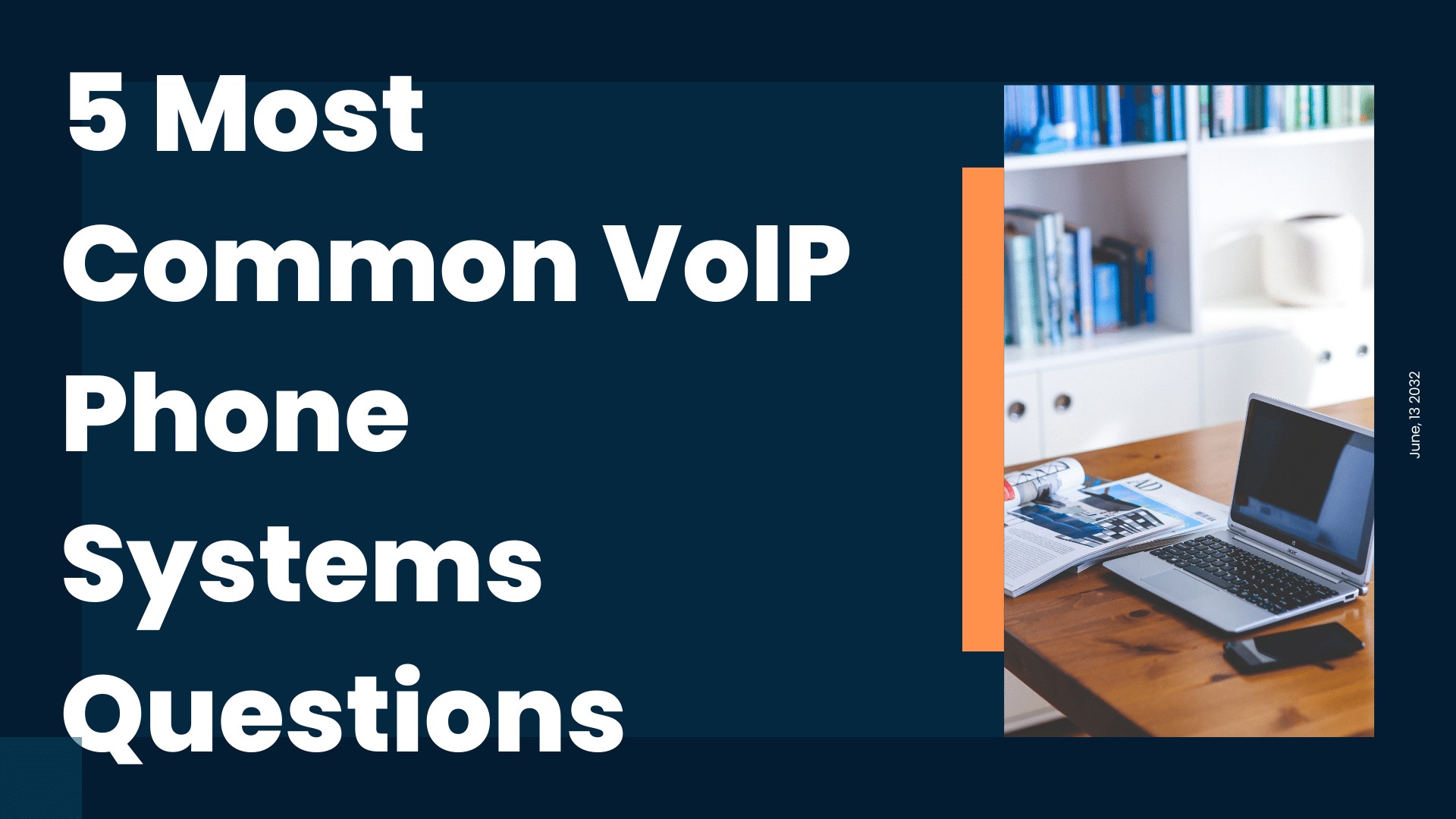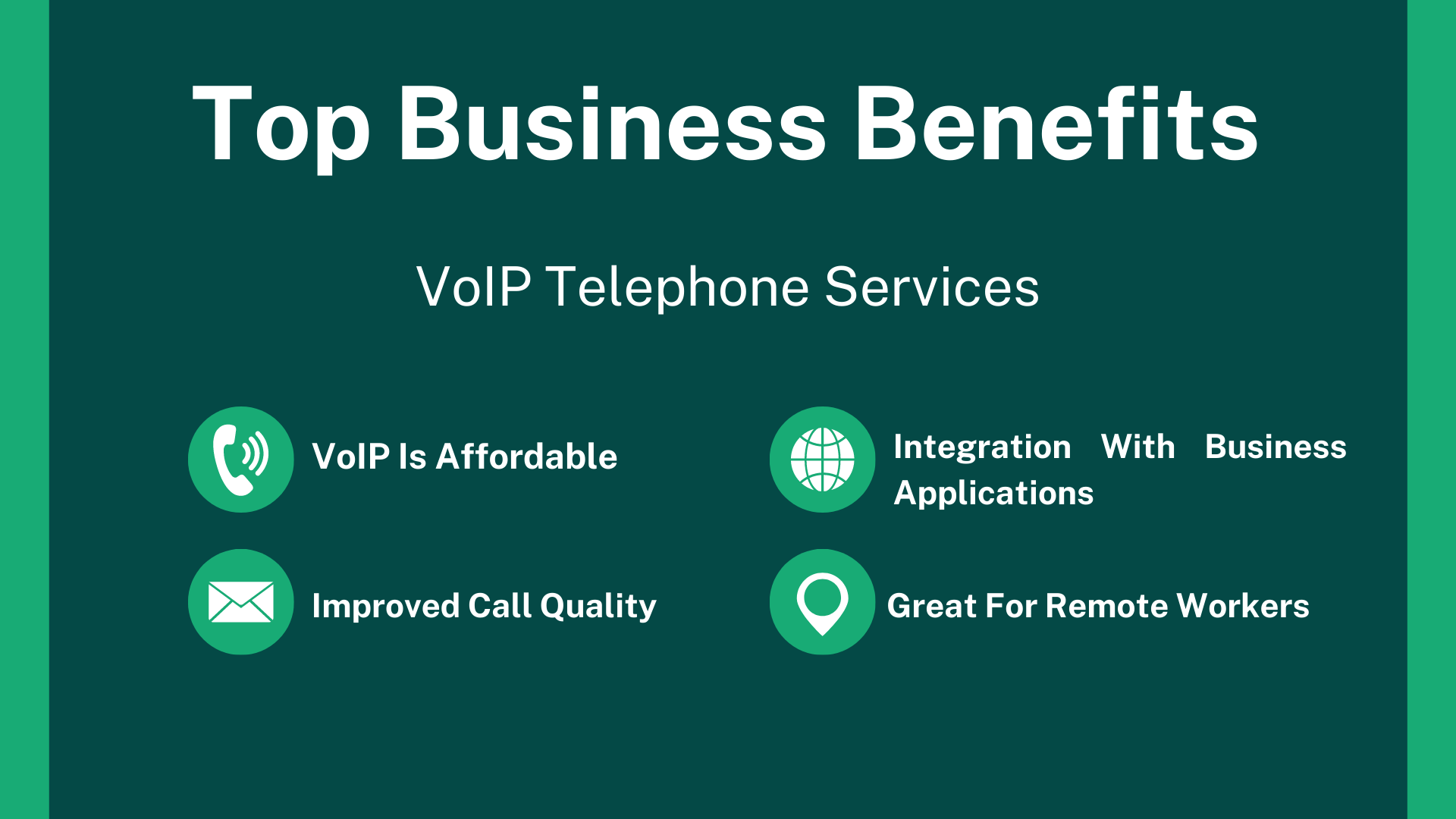-
Connect With Your Ottawa IT Service Company at (613) 828-1384
Connect With Your Ottawa IT Service Company at (613) 828-1384
Are you considering switching to a VoIP phone system? If so, you may have questions about VoIP, the most common VoIP phone systems, and what features you should look for. In this article, we will answer the 5 most common VoIP phone systems questions to help you make an informed decision.
First, let’s define what VoIP is. VoIP stands for Voice over Internet Protocol, meaning phone calls are made over the Internet rather than traditional phone lines. This technology has become increasingly popular in recent years due to its cost-effectiveness, scalability, and flexibility.
Let’s dive into the 5 most common VoIP phone systems questions. We will cover the difference between on-premises and hosted phones, the features you should look for in a VoIP phone system, the cost, and more. By the end of this article, you will better understand VoIP phone systems and be able to make an informed decision about whether it is right for your business.

VoIP is the way to go if you’re looking for a more cost-effective and efficient way to communicate with your clients and colleagues. VoIP stands for Voice over Internet Protocol, a technology that allows you to make and receive calls over the Internet instead of using traditional phone lines.
VoIP works by converting your voice into digital data that can be transmitted over the internet. When you make a call using VoIP, your voice is converted into data packets sent over the internet to the recipient’s device. The recipient’s device then converts the data into audio that can be heard on the other end of the line.
There are several benefits to using VoIP for your business communications. Here are a few:
VoIP is a great option for businesses looking to save money and improve their communication capabilities.

When it comes to VoIP phone systems, there are five primary types that you should be aware of. Each of these systems has unique features, advantages, and disadvantages. Here are the five most common VoIP phone systems:
On-Premise VoIP is a type of VoIP phone system that is installed and maintained on your premises. This system requires you to purchase and install the necessary hardware and software, which can be expensive and time-consuming. However, On-Premise VoIP offers greater control and customization options than other VoIP phone systems.
Hosted VoIP is a type of VoIP phone system hosted and maintained by a third-party provider. With Hosted VoIP, you don’t need to purchase or maintain hardware or software. Instead, you pay a monthly fee to the provider for access to the system. Hosted VoIP is more affordable and flexible than On-Premise VoIP, but it offers less control and customization options.
Mobile VoIP is a type of VoIP phone system that allows you to make and receive calls using your mobile device. This system uses your mobile data or Wi-Fi connection to transmit calls, which can be more affordable than traditional cellular calls. Mobile VoIP is a convenient option for remote workers or people always on the go.
Softphone VoIP is a type of VoIP phone system that uses software on your computer to make and receive calls. This system requires a headset and microphone but eliminates the need for a physical phone. Softphone VoIP is a cost-effective and flexible option for businesses with remote workers or people working from home.
WebRTC VoIP is a VoIP phone system that uses web browsers to make and receive calls. This system requires no additional software or hardware, as it is built into most modern web browsers. WebRTC VoIP is a convenient option for businesses with remote workers or people who need to make calls from different devices.
Each of these five VoIP phone systems has unique features and benefits. Choosing the right system for your business or personal needs will depend on your budget, preferences, and requirements.

When looking for a VoIP phone system, there are several features you should consider to ensure you choose the right system for your business needs. Here are some important features to look for:
Call management features are essential for any business. You want to ensure your VoIP phone system has features allowing you to manage your calls effectively. Some important call management features to look for include:
Your VoIP phone system should integrate with other applications you use to manage your business. This will help streamline your workflow and increase productivity. Look for a system that can integrate with the following applications:
Your business needs may change over time, so choosing a VoIP phone system that can scale with your business is important. Look for a system that offers:
Your VoIP phone system should be reliable and secure. Look for a system that offers:
In summary, when choosing a VoIP phone system, consider call management features, integration with other applications, scalability, reliability, and security. Considering these factors, you can choose a system that meets your business needs and helps you communicate effectively with your customers and colleagues.
When considering a VoIP phone system, one of the most important questions is how much it will cost. The answer depends on several factors, including the size of your business, the features you need, and the type of VoIP phone system you choose.
The upfront costs of a VoIP phone system can vary widely depending on the system you choose. On-premises VoIP phone systems generally have higher upfront costs since you must purchase the equipment and pay for installation. Hosted VoIP phone systems, on the other hand, typically have lower upfront costs since you don’t need to purchase any equipment.
Here are some typical upfront costs you can expect:
Monthly costs for a VoIP phone system can also vary widely depending on your chosen system. Hosted VoIP phone systems generally have lower monthly costs since you don’t need to pay for maintenance and upgrades. On-premises VoIP phone systems, on the other hand, may have higher monthly costs since you need to pay for maintenance and upgrades.
Here are some typical monthly costs you can expect:
In addition to upfront and monthly costs, additional costs may be associated with a VoIP phone system. These can include:
Overall, the cost of a VoIP phone system can vary widely depending on the system you choose and the features you need. However, by considering the upfront, monthly, and additional costs, you can better understand what to expect when budgeting for a VoIP phone system for your business.

A VoIP phone system consists of three main components: the VoIP service provider, the IP phone, and the internet connection. The VoIP service provider is responsible for routing your calls over the internet. The IP phone is the device you use to make and receive calls. And the internet connection is how your calls are transmitted.
The three types of VoIP services are on-premise, hosted, and hybrid. On-premise VoIP systems are installed locally on your premises. Hosted VoIP systems are cloud-based and maintained by the service provider. Hybrid VoIP systems combine on-premise and hosted components.
Skype was one of the most popular VoIP services in the early days of the technology. However, many popular VoIP services exist today, including Google Voice, RingCentral, and Vonage.
VoIP stands for Voice over Internet Protocol. This technology allows you to make and receive phone calls over the Internet instead of using traditional phone lines. VoIP converts your voice into digital signals and sends them over the internet to the person you are calling.
To troubleshoot VoIP call quality issues, you can try the following steps:
If your VoIP call disconnects simultaneously every day, it may be due to a scheduled maintenance outage by your VoIP service provider. Alternatively, it could be due to an internet connection or hardware issue. Contact your VoIP service provider or IT department for assistance.